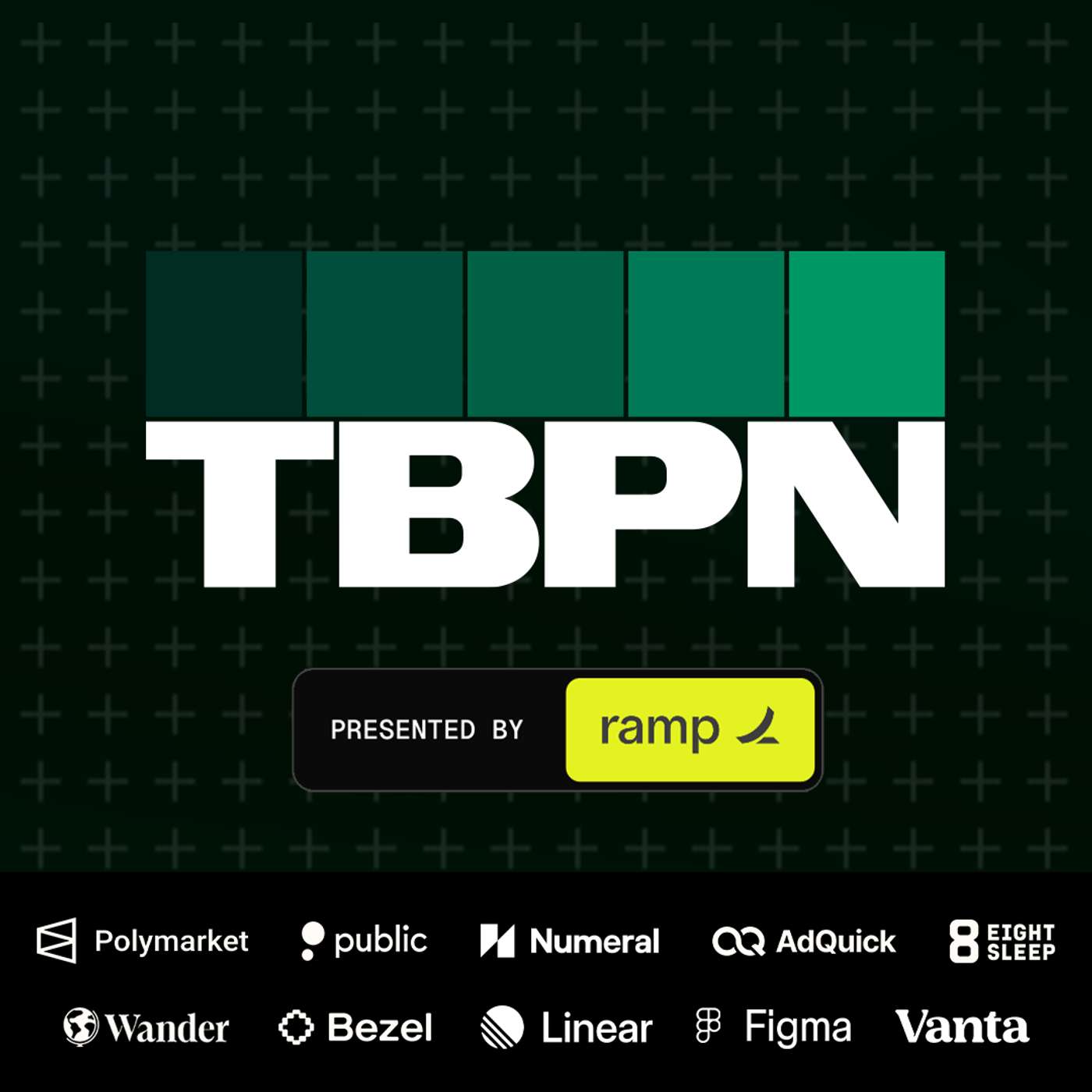
AI Adoption Trending Down for Large Companies, OpenAI Backs AI Animated Feature Film, China's Smart Glasses Domination | Avi Schiffmann, Sunny Madra, Scott Wu, Ara Kharazian, Zach Lloyd, Alex Cohen, Mati Staniszewski, Daniel Kao
🤖 AI Summary
Overview
This episode dives into the nuances of AI adoption trends, the intersection of AI and creative industries, and the evolving landscape of AI-driven tools and technologies. Guests include entrepreneurs and innovators discussing their groundbreaking projects, from AI-powered voice platforms to smart glasses and AI companions.
Notable Quotes
- True voice experience takes an artist, and you guys are artists.
- Jensen Huang, on Eleven Labs' unique approach to voice AI.
- If you're worried about losing your job to vibe coding, pivot to vibe coding cleanup.
- Jordi Hays, on the emergence of new AI-related job roles.
- AI is going to seep into every crack of small business day-to-day operations, but the operator won't be proudly telling the census worker, 'I'm all in on AI.'
- John Coogan, on the understated ubiquity of AI.
🧠 AI Adoption Trends
- The U.S. Census Bureau's data suggests a decline in AI adoption among large firms, from 14% to 12%, but this is critiqued as potentially flawed due to narrow survey framing.
- Ara Kharazian from Ramp highlights their data showing 45% AI adoption among U.S. businesses, with higher rates in tech and finance.
- Small businesses are increasingly adopting AI tools like ChatGPT for operational tasks, while large firms struggle with overhyped AI transformation projects.
🎥 OpenAI's AI-Generated Feature Film
- OpenAI is investing $30M in a feature-length animated film, aiming to complete it in nine months.
- Despite AI advancements, the production will use human voice actors, suggesting current AI voice models may still face challenges in achieving full realism.
- Mati Staniszewski of Eleven Labs argues that AI voice technology is ready for Hollywood, citing successful use cases like Darth Vader in Fortnite.
🤖 AI Companions and Consumer Hardware
- Avi Schiffmann discusses Friend,
an AI companion device, and its bold billboard campaign. Despite criticism, the device has cultivated a loyal user base.
- Schiffmann envisions future monetization models, including life insurance
for preserving the AI's memory and personality.
- The product's unique personality, shaped by years of development, sets it apart from generic AI tools.
👓 China's Smart Glasses and Global Competition
- Meta's upcoming smart glasses face stiff competition from China's affordable alternatives, like Alibaba's $280 Quark Vision.
- The evolution of smart glasses is categorized into three generations, with Gen 2 expected to introduce low-resolution displays in 2026.
- Analysts predict smart glasses will become essential devices, integrating seamlessly with AI for real-time data and task execution.
💻 AI in Software Engineering
- Scott Wu of Cognition AI discusses their $10.2B valuation and the integration of Windsurf to enhance their AI coding tool, Devin.
- Cognition focuses on automating repetitive engineering tasks, achieving 8-15x productivity gains.
- Wu addresses concerns about AI-generated code security, emphasizing the importance of code reviews and specialized agents for debugging.
AI-generated content may not be accurate or complete and should not be relied upon as a sole source of truth.
📋 Episode Description
- (00:25) - AI Adoption Trending Down for Large Companies
- (17:57) - OpenAI Backs AI Animated Feature Film
- (21:31) - Avi Schiffmann, the creator of the AI companion device "Friend," discusses the product's extensive billboard advertising campaign and addresses criticism from a Wired article titled "I Hate My Friend," suggesting that the journalists' negative experiences may reflect their own biases. He emphasizes that Friend is designed to be more than a sycophantic AI, aiming to make users more confident and agentic, and notes that while the device may not appeal to everyone, many users have formed strong attachments, sending thousands of messages daily. Schiffmann also touches on the unique personality of Friend, shaped by years of development, and considers future economic models, including offering "life insurance" for the AI to preserve its memory and personality over time.
- (34:09) - OpenAI Backs AI Animated Feature Film (cont'd)
- (46:30) - Timeline
- (01:10:34) - China's Smart Glasses Domination
- (01:38:43) - Sunny Madra, an experienced entrepreneur and current COO and President at Groq, has a history of successful exits, including the sales of Autonomic to Ford and Xtreme Labs to Pivotal. In the conversation, he discusses the U.S. President's proactive approach to supporting technologists by addressing issues like export controls and tariffs, emphasizing the administration's commitment to enabling innovation and ensuring America's leadership in AI and technology.
- (01:52:18) - Scott Wu, CEO and co-founder of Cognition AI, is a renowned competitive programmer and entrepreneur who has led the development of Devin, an autonomous AI software engineer. In the conversation, Wu discusses Cognition's recent $10.2 billion valuation following a funding round led by Founders Fund, the integration of Windsurf's products with Devin to enhance software engineering efficiency, and the company's focus on automating engineering tasks to reduce developer toil. He also addresses concerns about AI-generated code security, emphasizing the importance of existing engineering processes like code reviews, and highlights the potential for AI tools to transform software development by enabling engineers to focus on strategic problem-solving.
- (02:14:11) - Ara Kharazian is an economist at Ramp, specializing in AI trends, macroeconomic forecasting, labor economics, and business dynamism. In the conversation, he critiques the Census Bureau's AI adoption survey for underestimating usage due to its narrow question framing, highlights Ramp's data indicating a 45% AI adoption rate among U.S. businesses, and discusses the emergence of the 996 work culture in San Francisco, noting increased Saturday work activity among startups.
- (02:28:58) - Zach Lloyd, founder and CEO of Warp and former lead of the Google Sheets team, discusses the launch of Warp Code, an evolution of the Warp te
